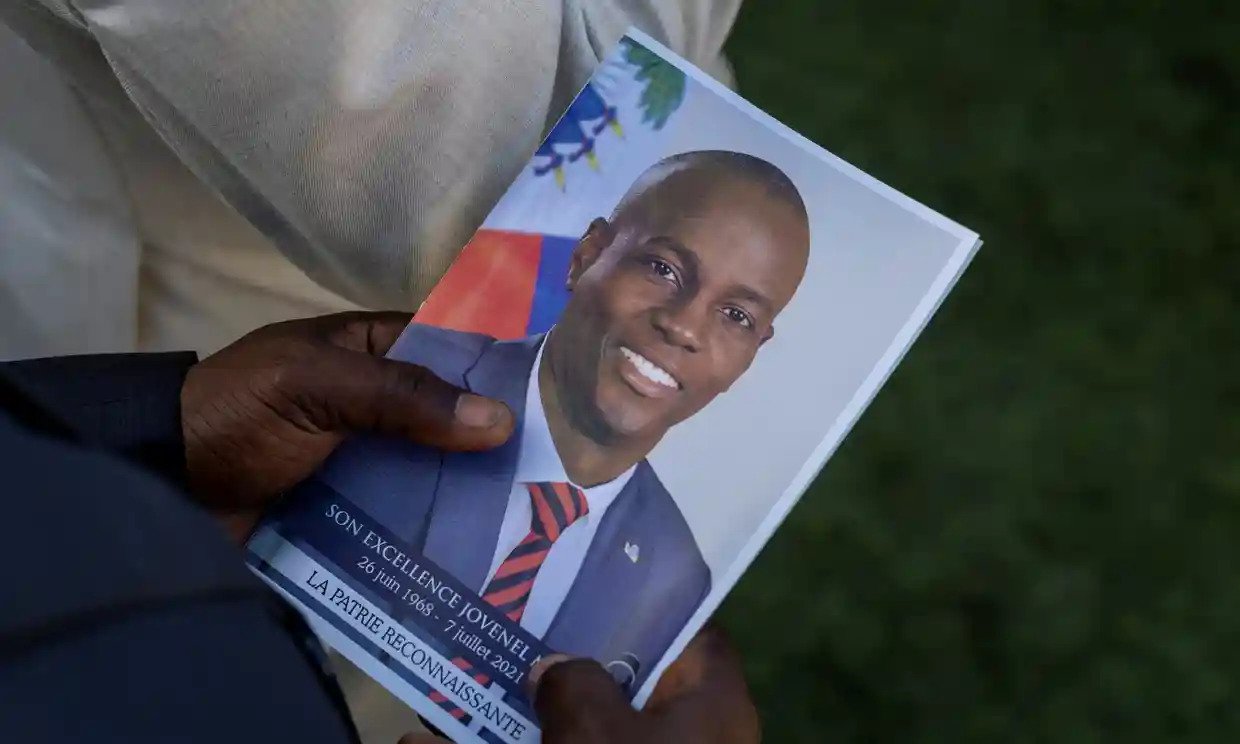
US federal law enforcement arrested four men who were involved in the assassination of Haitian president Jovenel Moise in July of 2021. Law enforcement arrested Venezuelan-American Tony Intriago, Colombian Arcangel Pretel Ortiz, financier Walter Veintemilla, and Frederick Joseph Bergmann. Intriago, Pretel Ortiz, and Bergmann are all part of CTU Security, a private security firm based in South Florida who were tasked with organizing and executing the assassination by hiring ex-mercenaries from Colombia, while Veitemilla is suspected of financing the operation. The Department of Justice believes they are connected to previously arrested Haitian Americans James Solages, Joseph Vincent, and Christian Emmanual Sanon, the latter of which is believed by some to be the mastermind behind the operation. Authorities believe the initial plot was to kidnap Moise by plane, but they lacked the requisite resources to execute this and an assassination was ordered instead, with Solages telling the perpetrators it was a CIA and DEA operation.
The first article from the BBC authored by Bernd Debusmann Jr offers the facts about the arrests and offers insight into the backgrounds of those who perpetrated the assassination. The article also highlights how these men may be connected to the broader plot, offering the names of Solages, Vincent, and Sanon. The article uses a variety of sources, from DOJ documents to court filings to Haitian sources and how the investigation has stalled in that country. The article includes German Alejandro Rivera who was involved in the plot but not mentioned in the Guardian article.
The second article comes from the Guardian, originally written by the associated press in Miami. This article sticks with the same facts as presented in the BBC article, but with a few exceptions. This article offers the perspective of Moise’s widow Martine, who called for the creation of a special UN tribunal to investigate the murder, which as been blocked for a number of months. The article includes more Haitian sources, including several Haitians who were involved in the plot who fled to neighboring countries who have since been extradited, and also includes how those arrested in Haiti were being held in an overcrowded jail while the investigation stalls due to security concerns from the judges, who believe their lives would be in danger. Also, this article includes a line from Sanon’s officials who believe he was being led on and there are more senior officials responsible.
The stories are functionally the same, with the same major details but The Guardian article goes into more depth and offers more angles from both the US and Haitian perspectives, from the extra people extradited to the overcrowded jails and conditions of Haitian judges who have stepped down. Tonally, the BBC is more of a straight away news article, with fewer words and sources, where as The Guardian article embeds it in more context. I think both of these articles do a good job, but The Guardian article adds more and puts the situation into more understandable context.
This story relates to class themes in a number of ways. First of all, this demonstrates how the US can be a vehicle for actors to intervene in Latin America. While the details aren’t perfectly clear, the CIA and DEA are mentioned, and the higher ups in the plot have American citizenship and contracted an American company. Second of all, it demonstrates how Haiti is constantly the subject of foreign interference. In the colonial era, France exploited the island and forcibly took reparations, and the US occupied it and constantly interfered with it for a number of decades in the 20th century. Here, we see American citizens using Colombian muscle to try and overthrow and assassinate a democratically elected official.
Sources:
https://www.bbc.com/news/world-us-canada-64644123
https://www.theguardian.com/world/2023/feb/14/haiti-president-assassination-arrests-us
Arduengo, Ricardo. A Person Holds a Photo of Jovenel Moïse during His Funeral in Cap-Haïtien, Haiti, in July 2021. February 14, 2023. Photograph. The Guardian. https://www.theguardian.com/world/2023/feb/14/haiti-president-assassination-arrests-us.
